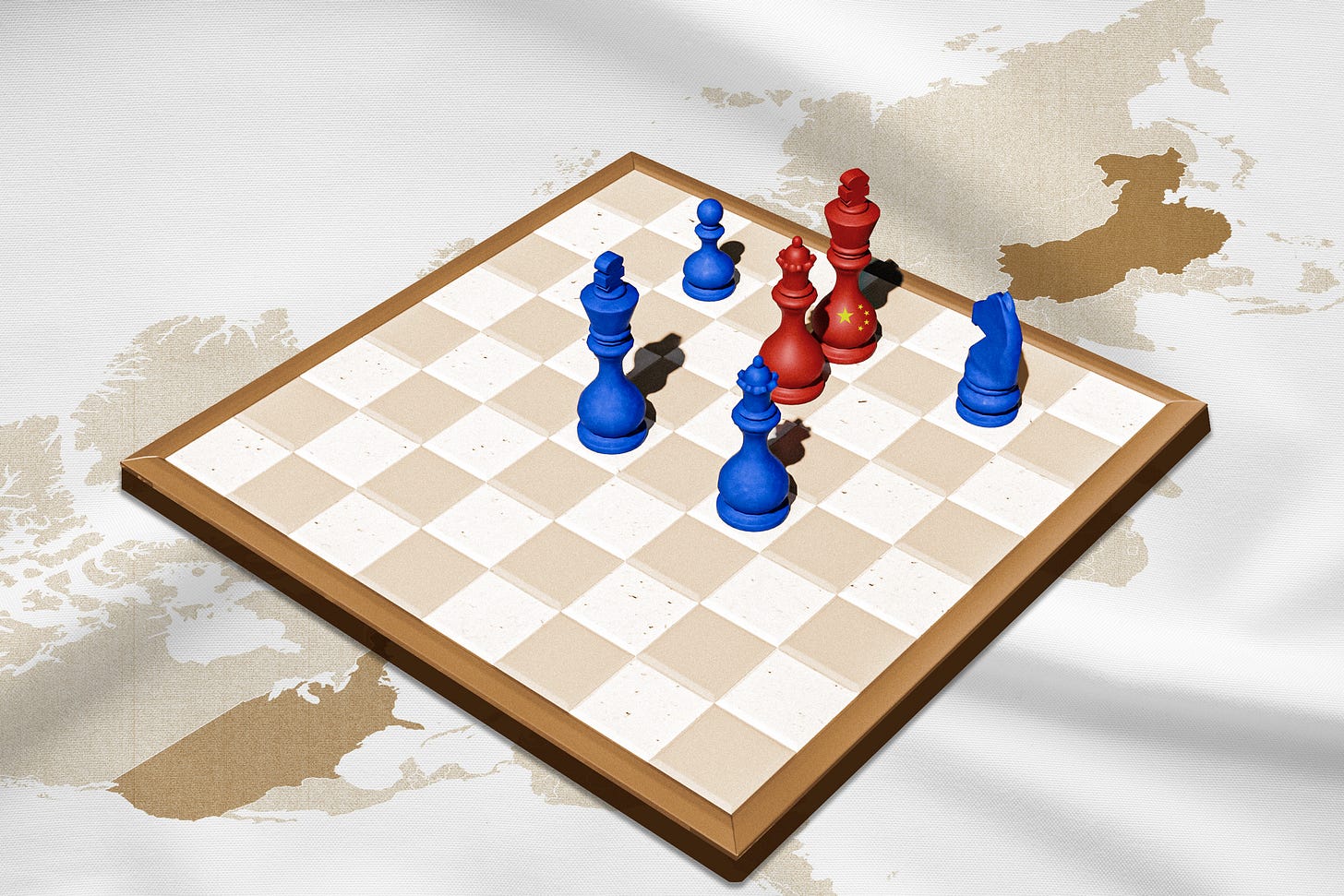Trump Reorganizes the Chess Board Against China
Trump is challenging the Chinese regime on multiple fronts. Experts say that's just the beginning: "30 seconds Into a 3-hour movie".
Don’t miss our Deep Dive “The Illusion of Chinese Strength: Power, Paranoia, and the Temptation of War”. It’s one of the most important things we’ve ever published.
by Terri Wu
May 5, 2025
President Donald Trump has adopted a hardline approach to China policy in the first three months of his second term, diverging from his predecessor’s and even his own first-term policies.
Trump’s first term marked a significant shift from the decades-long U.S.–China policy, which had sought economic cooperation with Beijing in the hope of creating conditions for political reforms in the communist country.
Recognizing the futility of this approach, Trump’s first administration took a tougher stance on China, imposing tariffs on Chinese goods to level the playing field and implementing export controls to maintain America’s lead in advanced technology. The Biden administration took a similar approach and increased these measures for selected sectors and products.
In his current term, Trump has upped the ante.
Rather than reacting to China’s moves, the president is proactively rearranging the game board, according to Christopher Balding, a senior fellow at UK-based think tank the Henry Jackson Society.
Trump is using tariffs to open the door to radical change and is “creating a global trade bloc of countries that are allied against China,” Balding said.
The China strategy is no longer just about export controls on advanced technology and sanctions against Chinese companies with military connections. The Trump administration has also reportedly asked other countries to reduce their trade and economic ties with China in exchange for reductions in tariffs.
Trump’s actions on China are not just to address trade imbalances, according to Yeh Yao-Yuan, a professor of international studies at the University of St. Thomas in Houston. He said the president is using tariffs and trade to weaken the global influence of the Chinese Communist Party (CCP).
The CCP has sensed the unprecedented challenge — Chinese state media outlets have called the U.S.–China tariff conflict a “battle for national destiny.”




